- Home
- W. W. Jacobs
The Monkey's Paw and Other Tales Of Mystery and the Macabre Page 19
The Monkey's Paw and Other Tales Of Mystery and the Macabre Read online
Page 19
That was arter he ’ad been with me for three weeks, and when Saturday came, of course I was more short than ever, and people came and stood at their doors all the way down our street to listen to the missis taking my character away.
I stood it as long as I could, and then, when ’er back was turned for ’arf a moment, I slipped out. While she’d been talking I’d been thinking, and it came to me clear as daylight that there was no need for me to sacrifice myself any longer looking arter a dead man’s watch and chain.
I didn’t know exactly where Joe Peel lived, but I knew the part, and arter peeping into seven public ’ouses I see the man I wanted sitting by ’imself in a little bar. I walked in quietlike, and sat down opposite ’im.
“Morning,” I ses.
Joe Peel grunted.
“’ave one with me?” I ses.
He grunted agin, but not quite so fierce, and I fetched the two pints from the counter and took a seat alongside of ’im.
“I’ve been looking for you,” I ses.
“Oh!” he ses, looking me up and down and all over. “Well, you’ve found me now.”
“I want to talk to you about the ghost of pore Sam Bullet,” I ses.
Joe Peel put ’is mug down sudden and looked at me fierce. “Look ’ere! don’t you come and try to be funny with me,” he ses. “‘Cos I won’t ’ave it.”
“I don’t want to be funny,” I ses. “Wot I want to know is, are you in the same mind about that watch and chain as you was the other day?”
He didn’t seem to be able to speak at fust, but arter a time ’e gives a gasp. “Wot’s the game?” he ses.
“Wot I want to know is, if I give you that watch and chain for fifteen bob, will that keep the ghost from ’anging round my wharf agin?” I ses.
“Why, o’ course,” he ses, staring; “but you ain’t been seeing it agin, ’ave you?”
“I’ve not, and I don’t want to,” I ses. “If it wants you to ’ave the watch and chain, give me the fifteen bob, and it’s yours.”
He looked at me for a moment as if he couldn’t believe ’is eyesight, and then ’e puts his ’and into ’is trowsis-pocket and pulls out one shilling and fourpence, ’arf a clay-pipe, and a bit o’ lead-pencil.
“That’s all I’ve got with me,” he ses. “I’ll owe you the rest. You ought to ha’ took the fifteen bob when I ’ad it.”
There was no ’elp for it, and arter making ’im swear to give me the rest o’ the money when ’e got it, and that I shouldn’t see the ghost agin, I ’anded the things over to ’im and came away. He came to the door to see me off, and if ever a man looked puzzled, ’e did. Pleased at the same time.
It was a load off of my mind. My conscience told me I’d done right, and arter sending a little boy with a note to Ted Dennis to tell ’im not to come any more, I felt ‘appier than I ’ad done for a long time. When I got to the wharf that evening it seemed like a diff’rent place, and I was whistling and smiling over my work quite in my old way, when the young policeman passed.
“Hullo!” he ses. “’ave you seen the ghost agin?”
“I ’ave not,” I ses, drawing myself up. “’ave you?”
“No,” he ses. “We missed it.”
“Missed it?” I ses, staring at ’im.
“Yes,” he ses, nodding. “The day arter you came out screaming, and cuddling me like a frightened baby, it shipped as A.B. on the barque Ocean King, for Valparaiso. We missed it by a few hours. Next time you see a ghost, knock it down fust and go and cuddle the police arterwards.”
16
In Mid-Atlantic
“No, sir,” said the night-watchman, as he took a seat on a post at the end of the jetty, and stowed a huge piece of tobacco in his cheek. “No, man an’ boy, I was at sea forty years afore I took on this job, but I can’t say as ever I saw a real, downright ghost.”
This was disappointing, and I said so. Previous experience of the power of Bill’s vision had led me to expect something very different.
“Not but what I’ve known some queer things happen,” said Bill, fixing his eyes on the Surrey side, and going off into a kind of trance. “Queer things.”
I waited patiently; Bill’s eyes, after resting for some time on Surrey, began to slowly cross the river, paused midway in reasonable hopes of a collision between a tug with its flotilla of barges and a penny steamer, and then came back to me.
“You heard that yam old Cap’n Harris was telling the other day about the skipper he knew having a warning one night to alter his course, an’ doing so, picked up five live men and three dead skeletons in a open boat?” he inquired.
I nodded.
“The yarn in various forms is an old one,” said I.
“It’s all founded on something I told him once,” said Bill. “I don’t wish to accuse Cap’n Harris of taking another man’s true story an’ spoiling it; he’s got a bad memory, that’s all. Fust of all, he forgets he ever heard the yarn; secondly, he goes and spoils it.”
I gave a sympathetic murmur. Harris was as truthful an old man as ever breathed, but his tales were terribly restricted by this circumstance, whereas Bill’s were limited by nothing but his own imagination.
“It was about fifteen years ago now,” began Bill, getting the quid into a bye-way of his cheek, where it would not impede his utterance. “I was A.B. on the Swallow, a barque, trading wherever we could pick up stuff. On this v’y’ge we was bound from London to Jamaica with a general cargo.
“The start of that v’y’ge was excellent. We was towed out of the St. Katherine’s Docks here, to the Nore, an’ the tug left us to a stiff breeze, which fairly raced us down Channel and out into the Atlantic. Everybody was saying what a fine v’y’ge we was having, an’ what quick time we should make, an’ the fust mate was in such a lovely temper that you might do anything with him a’most.
“We was about ten days out, an’ still slipping along in this spanking way, when all of a sudden things changed. I was at the wheel with the second mate one night, when the skipper, whose name was Brown, came up from below in a uneasy sort o’ fashion, and stood looking at us for some time without speaking. Then at last he sort o’ makes up his mind, and ses he—
“‘Mr McMillan, I’ve just had a most remarkable experience, an’ I don’t know what to do about it.’
‘“Yes, sir?’ ses Mr McMillan.
“‘Three times I’ve been woke up this night by something shouting in my ear, “Steer nor’-nor’-west!” ses the cap’n very solemnly, “Steer nor’- nor’-west!” that’s all it says. The first time I thought it was somebody got into my cabin skylarking, and I laid for ’em with a stick; but I’ve heard it three times, an’ there’s nothing there.’
“4 It’s a supernatural warning,’ ses the second mate, who had a great uncle once who had the second sight, and was the most unpopular man of his family, because he always knew what to expect, and laid his plans according.
“ That’s what I think,’ ses the cap’n. There’s some poor shipwrecked fellow creatures in distress.’
“‘It’s a verra grave responsebeelity,’ ses Mr McMillan. ‘I should just ca’ up the fairst mate.’
“‘Bill,’ ses the cap’n, ‘just go down below, and tell Mr Salmon I’d like a few words with him partikler.’
Well, I went down below, and called up the first mate, and as soon as I’d explained to him what he was wanted for, he went right off into a fit of outrageous bad language, an’ hit me. He came right up on deck in his pants an’ socks. A most disrespekful way to come to the cap’n, but he was that hot and excited he didn’t care what he did.
“‘Mr Salmon,’ ses the cap’n gravely, ‘I’ve just had a most solemn warning, and I want to—’
“‘I know,’ says the mate gruffly.
“‘What! have you heard it too?’ ses the cap’n, in surprise. Three times?’
“‘I heard it from him,’ ses the mate, pointing to me. ‘Nightmare, sir, nightmare.’
“‘It was not n
ightmare, sir,’ ses the cap’n, very huffy, ‘an’ if I hear it again, I’m going to alter this ship’s course.’
“Well, the fust mate was in a hole. He wanted to call the skipper something which he knew wasn’t discipline. I knew what it was, an’ I knew if the mate didn’t do something he’d be ill, he was that sort of man, everything flew to his head. He walked away, and put his head over the side for a bit, an’ at last, when he came back, he was, comparatively speaking, calm.
“‘You mustn’t hear them words again, sir,’ ses he; ‘don’t go to sleep again to-night. Stay up, an’ we’ll have a hand o’ cards, and in the morning you take a good stiff dose o’ rhoobarb. Don’t spoil one o’ the best trips we’ve ever had for the sake of a pennyworth of rhoobarb,’ ses he, pleading-like.
“‘Mr Salmon,’ ses the cap’n, very angry, I shall not fly in the face o’ Providence in any such way. I shall sleep as usual, an’ as for your rhoobarb,’ ses the cap’n, working hisself up into a passion—’damme, sir, I’ll—I’ll dose the whole crew with it, from first mate to cabin-boy, if I have any impertinence.’
“Well, Mr Salmon, who was getting very mad, stalks down below, followed by the cap’n, an’ Mr McMillan was that excited that he even started talking to me about it. Half-an-hour arterwards the cap’n comes running up on deck again.
“‘Mr McMillan,’ ses he excitedly, ‘steer nor’-nor’-west until further orders. I’ve heard it again, an’ this time it nearly split the drum of my ear.’
“The ship’s course was altered, an’ after the old man was satisfied he went back to bed again, an’ almost directly arter eight bells went, an’ I was relieved. I wasn’t on deck when the fust mate come up, but those that were said he took it very calm. He didn’t say a word. He just sat down on the poop, and blew his cheeks out.
“As soon as ever it was daylight the skipper was on deck with his glasses. He sent men up to the masthead to keep a good look-out, an’ he was dancing about like a cat on hot bricks all the morning.
“‘How long are we to go on this course, sir?’ asks Mr Salmon, about ten o’clock in the morning.
“I’ve not made up my mind, sir,’ ses the cap’n, very stately; but I could see he was looking a trifle foolish.
“At twelve o’clock in the day, the fust mate got a cough, and every time he coughed it seemed to act upon the skipper, and make him madder and madder. Now that it was broad daylight, Mr McMillan didn’t seem to be so creepy as the night before, an’ I could see the cap’n was only waiting for the slightest excuse to get into our proper course again.
“‘That’s a nasty, bad cough o’ yours, Mr Salmon,’ ses he, eyeing the mate very hard.
“‘Yes, a nasty, irritating sort o’ cough, sir,’ ses the other; ‘it worries me a great deal. It’s this going up nor’ards what’s sticking in my throat,’ ses he.
“The cap’n give a gulp, and walked off, but he comes back in a minute, and ses he—
“‘Mr Salmon, I should think it a great pity to lose a valuable officer like yourself, even to do good to others. There’s a hard ring about that cough I don’t like, an’ if you really think it’s going up this bit north, why, I don’t mind putting the ship in her course again.’
“Well, the mate thanked him kindly, and he was just about to give the orders when one o’ the men who was at the masthead suddenly shouts out—
“‘Ahoy! Small boat on the port bow!’
“The cap’n started as if he’d been shot, and ran up the rigging with his glasses. He came down again almost direckly, and his face was all in a glow with pleasure and excitement.
“‘Mr Salmon,’ ses he, ‘here’s a small boat with a lug sail in the middle o’ the Atlantic, with one pore man lying in the bottom of her. What do you think o’ my warning now?’
“The mate didn’t say anything at first, but he took the glasses and had a look, an’ when he came back anyone could see his opinion of the skipper had gone up miles and miles.
“‘It’s a wonderful thing, sir,’ ses he, ’and one I’ll remember all my life. It’s evident that you’ve been picked out as a instrument to do this good work.’
“I’d never heard the fust mate talk like that afore, ’cept once when he fell overboard, when he was full, and stuck in the Thames mud. He said it was Providence; though, as it was low water, according to the tide-table, I couldn’t see what Providence had to do with it myself. He was as excited as anybody, and took the wheel himself, and put the ship’s head for the boat, and as she came closer, our boat was slung out, and me and the second mate and three other men dropped into her, an’ pulled so as to meet the other.
“‘Never mind the boat; we don’t want to be bothered with her,’ shouts out the cap’n as we pulled away—’Save the man!’
“I’ll say this for Mr McMillan, he steered that boat beautifully, and we ran alongside o’ the other as clever as possible. Two of us shipped our oars, and gripped her tight, and then we saw that she was just an ordinary boat, partly decked in, with the head and shoulders of a man showing in the opening, fast asleep, and snoring like thunder.
“‘Puir chap,’ ses Mr McMillan, standing up. ‘Look how wasted he is.’
“He laid hold o’ the man by the neck of his coat an’ his belt, an’, being a very powerful man, dragged him up and swung him into our boat, which was bobbing up and down, and grating against the side of the other. We let go then, an’ the man we’d rescued opened his eyes as Mr McMillan tumbled over one of the thwarts with him, and, letting off a roar like a bull, tried to jump back into his boat.
“‘Hold him!’ shouted the second mate. ‘Hold him tight! He’s mad, puir feller.’
“By the way that man fought and yelled, we thought the mate was right, too. He was a short, stiff chap, hard as iron, and he bit and kicked and swore for all he was worth, until at last we tripped him up and tumbled him into the bottom of the boat, and held him there with his head hanging back over a thwart.
“‘It ‘s all right, my puir feller,’ ses the second mate; ‘ye’re in good hands—ye’re saved.’
“‘Damme!’ ses the man; ‘what’s your little game? Where’s my boat—eh? Where’s my boat?’
“He wriggled a bit, and got his head up, and, when he saw it bowling along two or three hundred yards away, his temper got the better of him, and he swore that if Mr McMillan didn’t row after it he’d knife him.
“‘We can’t bother about the boat,’ ses the mate; ‘we’ve had enough bother to rescue you.’
“‘Who the devil wanted you to rescue me?’ bellowed the man. ‘I’ll make you pay for this, you miserable swabs. If there’s any law in Amurrica, you shall have it!’
“By this time we had got to the ship, which had shortened sail, and the cap’n was standing by the side, looking down upon the stranger with a big, kind smile which nearly sent him crazy.
“‘Welcome aboard, my pore feller,’ ses he, holding out his hand as the chap got up the side.
“‘Are you the author of this outrage?’ ses the man fiercely.
“‘I don’t understand you,’ ses the cap’n, very dignified, and drawing himself up.
“‘Did you send your chaps to sneak me out o’ my boat while I was having forty winks?’ roars the other. ‘Damme! that’s English, ain’t it?’
“‘Surely,’ ses the cap’n, ‘surely you didn’t wish to be left to perish in that little craft. I had a supernatural warning to steer this course on purpose to pick you up, and this is your gratitude.’
“‘Look here!’ ses the other. ‘My name’s Cap’n Naskett, and I’m doing a record trip from New York to Liverpool in the smallest boat that has ever crossed the Atlantic, an’ you go an’ bust everything with your cussed officiousness. If you think I’m going to be kidnapped just to fulfil your beastly warnings, you’ve made a mistake. I’ll have the law on you, that’s what I’ll do. Kidnapping’s a punishable offence.’
“‘ What did you come here for, then?’ ses the cap’n.
“
‘Come!’ howls Cap’n Naskett. ‘Come! A feller sneaks up alongside o’ me with a boat-load of street-sweepings dressed as sailors, and snaps me up while I’m asleep, and you ask me what I come for. Look here. You clap on all sail and catch that boat o’ mine, and put me back, and I’ll call it quits. If you don’t, I’ll bring a lawsuit agin you, and make you the laughingstock of two continents into the bargain.’
“Well, to make the best of a bad bargain, the cap’n sailed after the cussed little boat, and Mr Salmon, who thought more than enough time had been lost already, fell foul o’ Cap’n Naskett. They was both pretty talkers, and the way they went on was a education for every sailorman afloat. Every man aboard got as near as they durst to listen to them; but I must say Cap’n Naskett had the best of it. He was a sarkastik man, and pretended to think the ship was fitted out just to pick up shipwrecked people, an’ he also pretended to think we was castaways what had been saved by it. He said o’ course anybody could see at a glance we wasn’t sailormen, an’ he supposed Mr Salmon was a butcher what had been carried out to sea while paddling at Margate to strengthen his ankles. He said a lot more of this sort of thing, and all this time we was chasing his miserable little boat, an’ he was admiring the way she sailed, while the fust mate was answering his reflexshuns, an’ I’m sure that not even our skipper was more pleased than Mr Salmon when we caught it at last, and shoved him back. He was ungrateful up to the last, an’, just before leaving the ship, actually went up to Cap’n Brown, and advised him to shut his eyes an’ turn round three times and catch what he could.
“I never saw the skipper so upset afore, but I heard him tell Mr McMillan that night that if he ever went out of his way again after a craft, it would only be to run it down. Most people keep pretty quiet about supernatural things that happen to them, but he was about the quietest I ever heard of, an’, what’s more, he made everyone else keep quiet about it, too. Even when he had to steer nor’-nor’-west arter that in the way o’ business he didn’t like it, an’ he was about the most cruelly disappointed man you ever saw when he heard afterwards that Cap’n Naskett got safe to Liverpool.”

_preview.jpg) Sailor's Knots (Entire Collection)
Sailor's Knots (Entire Collection)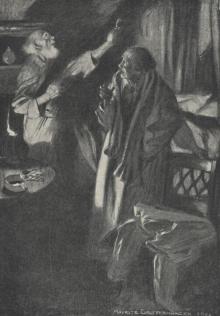 The Monkey's Paw
The Monkey's Paw Little Masterpieces of American Wit and Humor, Volume II
Little Masterpieces of American Wit and Humor, Volume II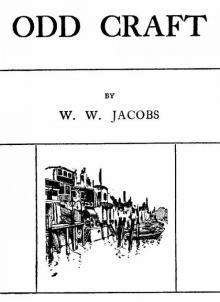 Odd Craft, Complete
Odd Craft, Complete The Lady of the Barge and Others, Entire Collection
The Lady of the Barge and Others, Entire Collection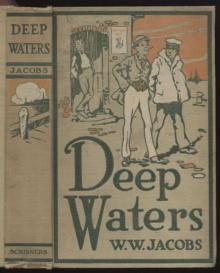 Deep Waters, the Entire Collection
Deep Waters, the Entire Collection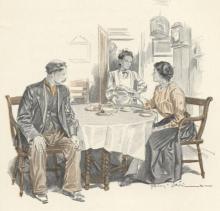 Three at Table
Three at Table Light Freights
Light Freights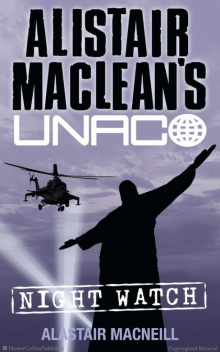 Night Watches
Night Watches The Three Sisters
The Three Sisters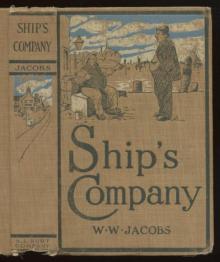 Ship's Company, the Entire Collection
Ship's Company, the Entire Collection His Lordship's Leopard: A Truthful Narration of Some Impossible Facts
His Lordship's Leopard: A Truthful Narration of Some Impossible Facts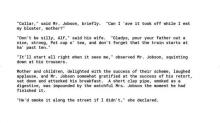 Fine Feathers
Fine Feathers My Man Sandy
My Man Sandy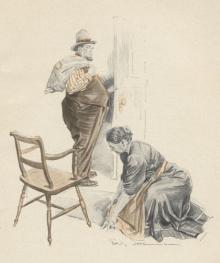 Self-Help
Self-Help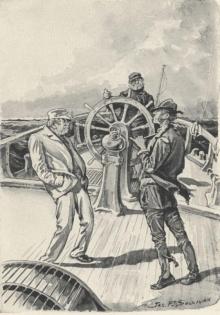 Captains All and Others
Captains All and Others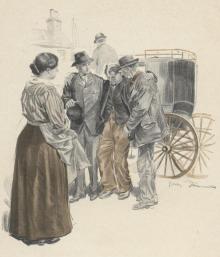 Back to Back
Back to Back More Cargoes
More Cargoes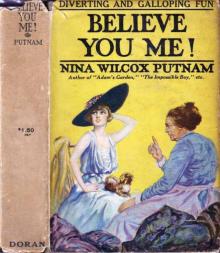 Believe You Me!
Believe You Me!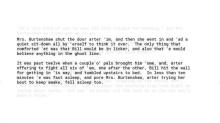 Keeping Up Appearances
Keeping Up Appearances The Statesmen Snowbound
The Statesmen Snowbound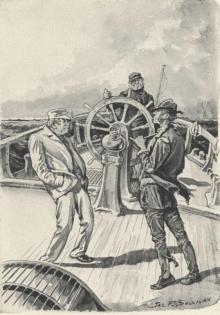 An Adulteration Act
An Adulteration Act The Old Soldier's Story: Poems and Prose Sketches
The Old Soldier's Story: Poems and Prose Sketches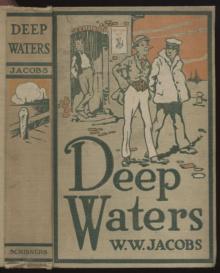 Husbandry
Husbandry Love and the Ironmonger
Love and the Ironmonger The Old Man's Bag
The Old Man's Bag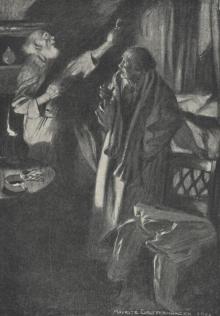 Dirty Work
Dirty Work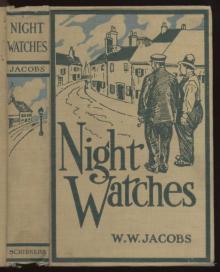 Easy Money
Easy Money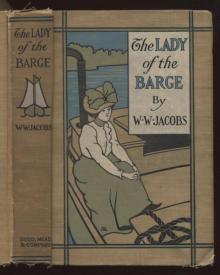 The Lady of the Barge
The Lady of the Barge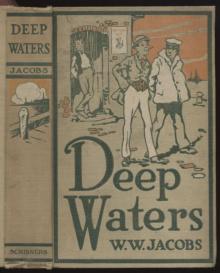 Bedridden and the Winter Offensive
Bedridden and the Winter Offensive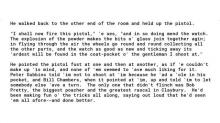 Odd Charges
Odd Charges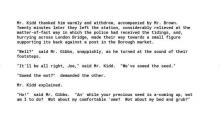 Friends in Need
Friends in Need Watch-Dogs
Watch-Dogs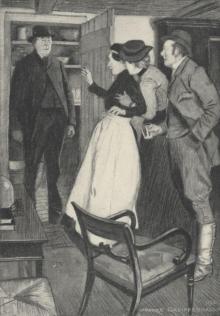 Cupboard Love
Cupboard Love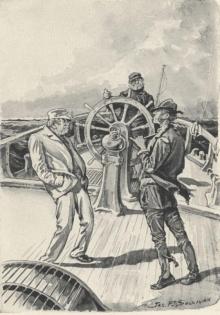 Captains All
Captains All A Spirit of Avarice
A Spirit of Avarice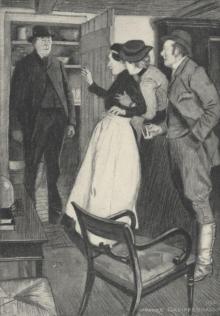 The Nest Egg
The Nest Egg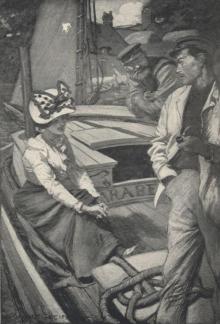 The Guardian Angel
The Guardian Angel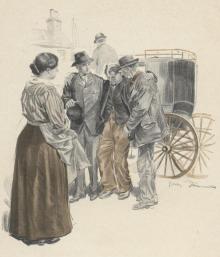 The Convert
The Convert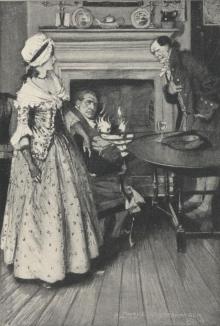 Captain Rogers
Captain Rogers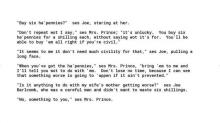 Breaking a Spell
Breaking a Spell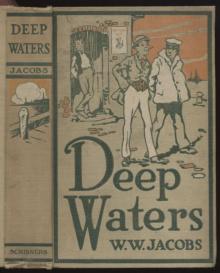 Striking Hard
Striking Hard The Bequest
The Bequest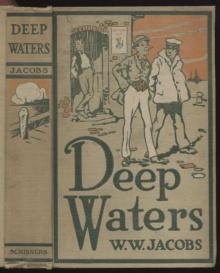 Shareholders
Shareholders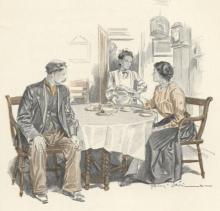 The Weaker Vessel
The Weaker Vessel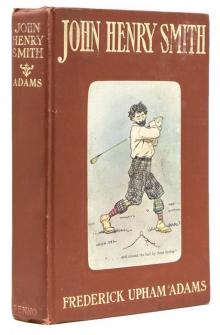 John Henry Smith
John Henry Smith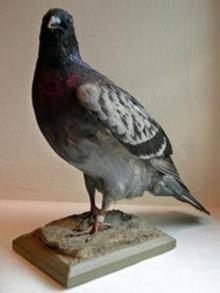 Four Pigeons
Four Pigeons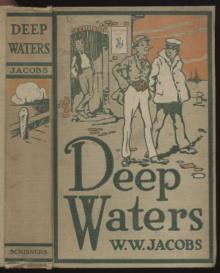 Made to Measure
Made to Measure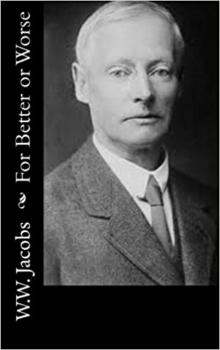 For Better or Worse
For Better or Worse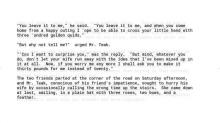 Fairy Gold
Fairy Gold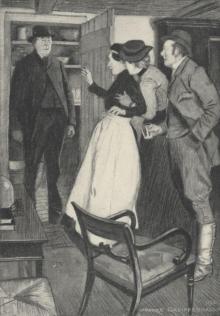 Family Cares
Family Cares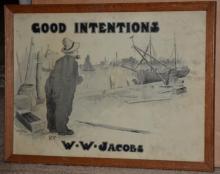 Good Intentions
Good Intentions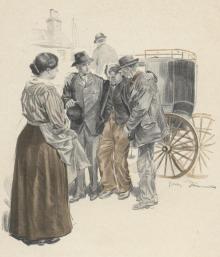 Prize Money
Prize Money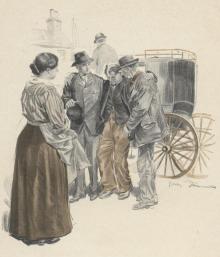 The Temptation of Samuel Burge
The Temptation of Samuel Burge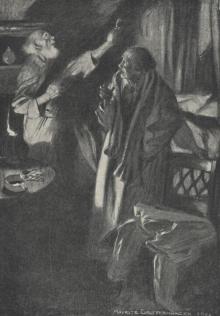 The Madness of Mr. Lister
The Madness of Mr. Lister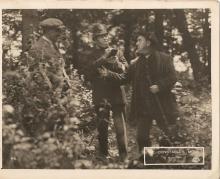 The Constable's Move
The Constable's Move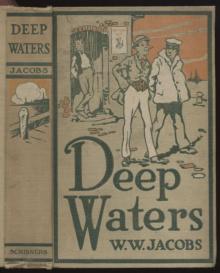 Paying Off
Paying Off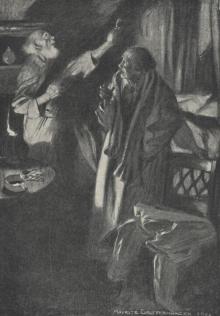 Double Dealing
Double Dealing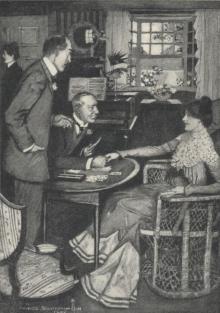 A Mixed Proposal
A Mixed Proposal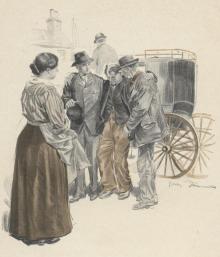 Bill's Paper Chase
Bill's Paper Chase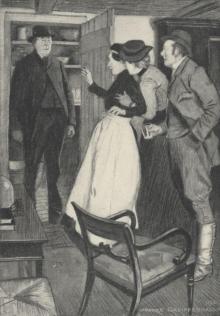 The Changing Numbers
The Changing Numbers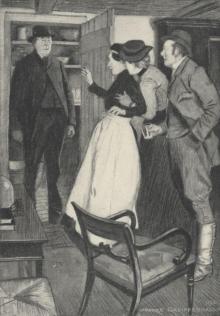 Over the Side
Over the Side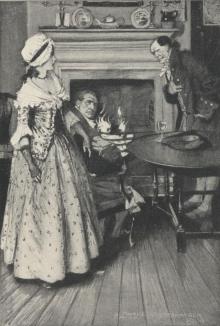 Lawyer Quince
Lawyer Quince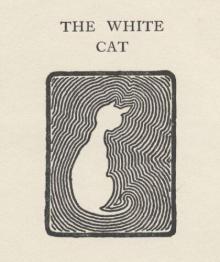 The White Cat
The White Cat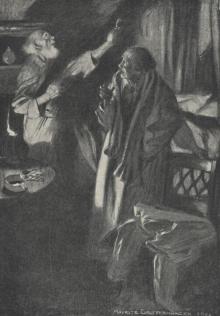 Admiral Peters
Admiral Peters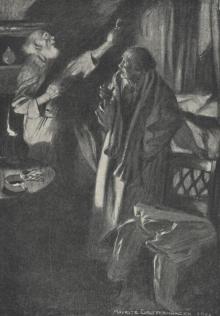 The Third String
The Third String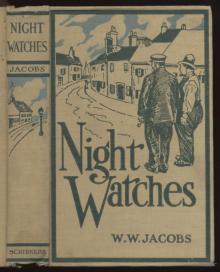 The Vigil
The Vigil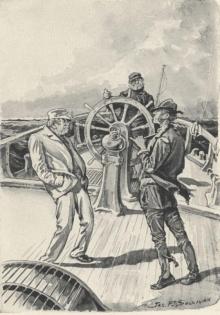 Bill's Lapse
Bill's Lapse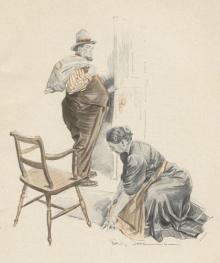 His Other Self
His Other Self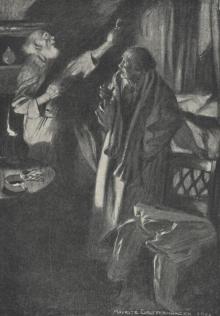 Matrimonial Openings
Matrimonial Openings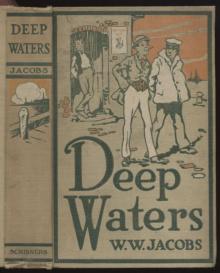 The Substitute
The Substitute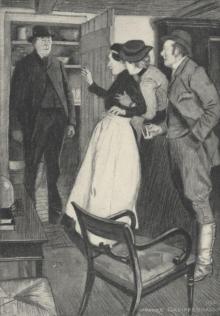 Deserted
Deserted Dual Control
Dual Control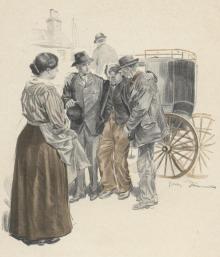 Homeward Bound
Homeward Bound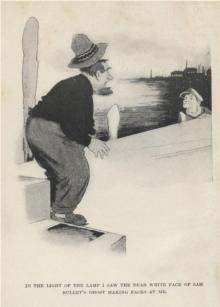 Sam's Ghost
Sam's Ghost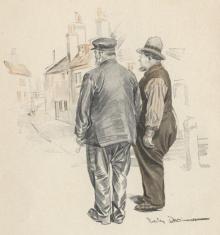 The Unknown
The Unknown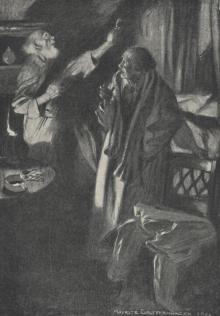 Stepping Backwards
Stepping Backwards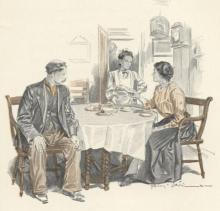 Sentence Deferred
Sentence Deferred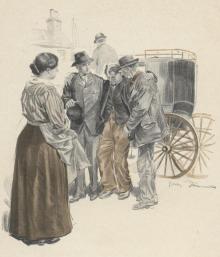 The Persecution of Bob Pretty
The Persecution of Bob Pretty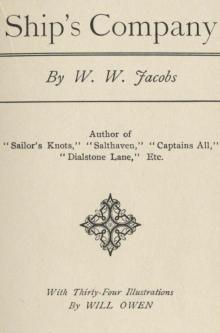 Skilled Assistance
Skilled Assistance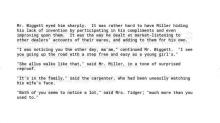 A Golden Venture
A Golden Venture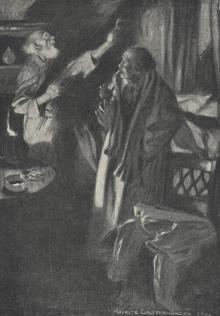 Establishing Relations
Establishing Relations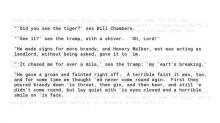 A Tiger's Skin
A Tiger's Skin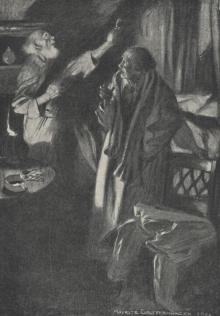 Bob's Redemption
Bob's Redemption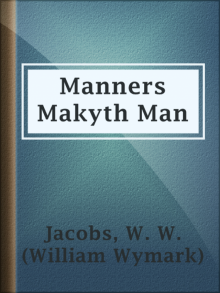 Manners Makyth Man
Manners Makyth Man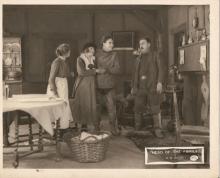 The Head of the Family
The Head of the Family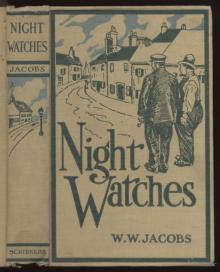 The Understudy
The Understudy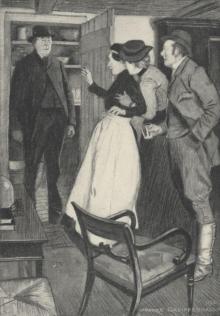 Odd Man Out
Odd Man Out Once Aboard the Lugger-- The History of George and his Mary
Once Aboard the Lugger-- The History of George and his Mary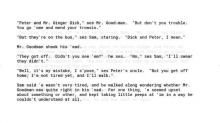 Peter's Pence
Peter's Pence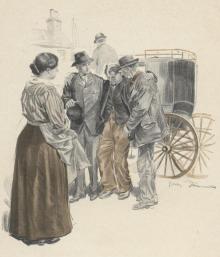 Blundell's Improvement
Blundell's Improvement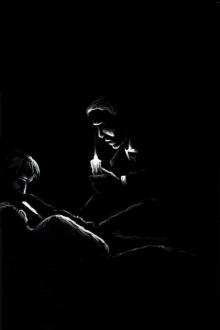 The Toll-House
The Toll-House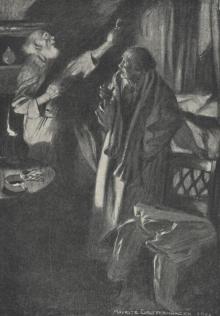 Dixon's Return
Dixon's Return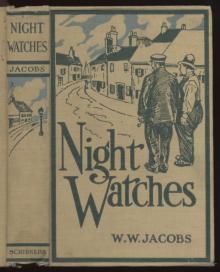 Keeping Watch
Keeping Watch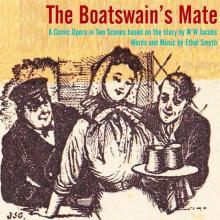 The Boatswain's Mate
The Boatswain's Mate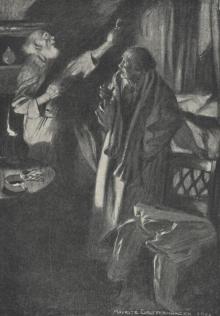 The Castaway
The Castaway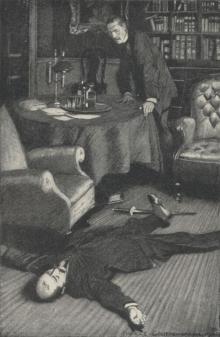 In the Library
In the Library The Monkey's Paw and Other Tales Of Mystery and the Macabre
The Monkey's Paw and Other Tales Of Mystery and the Macabre